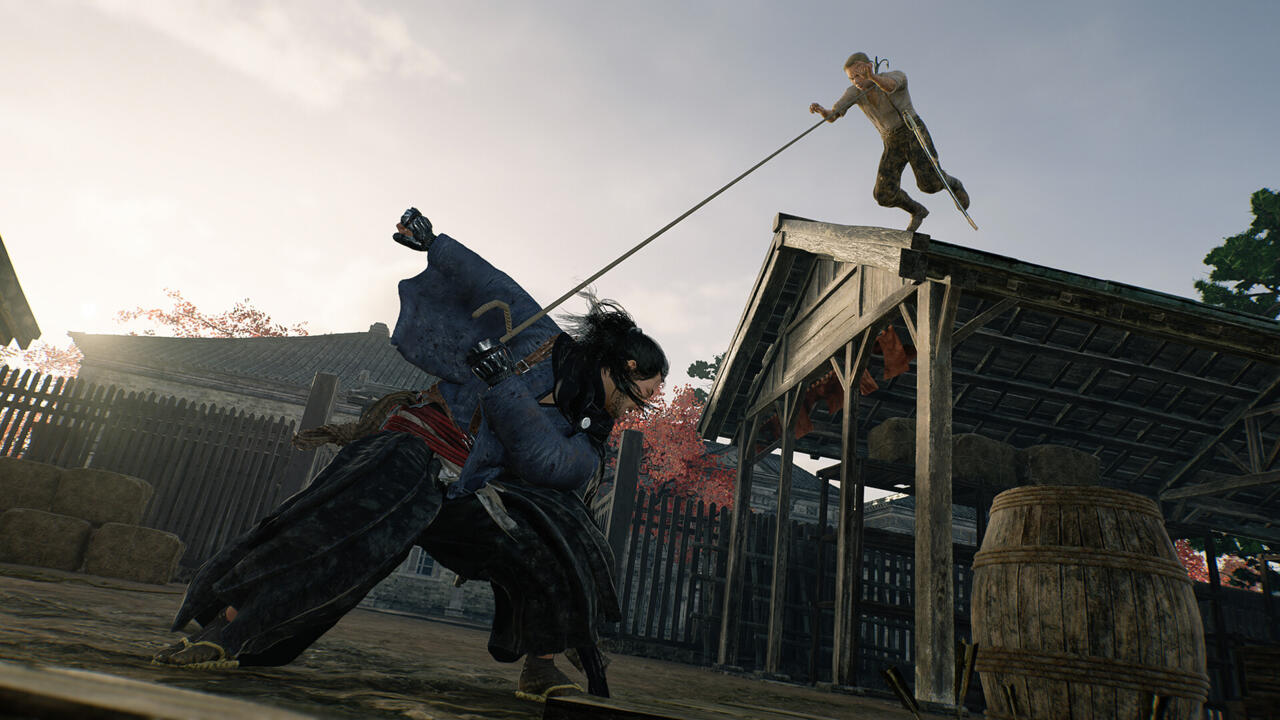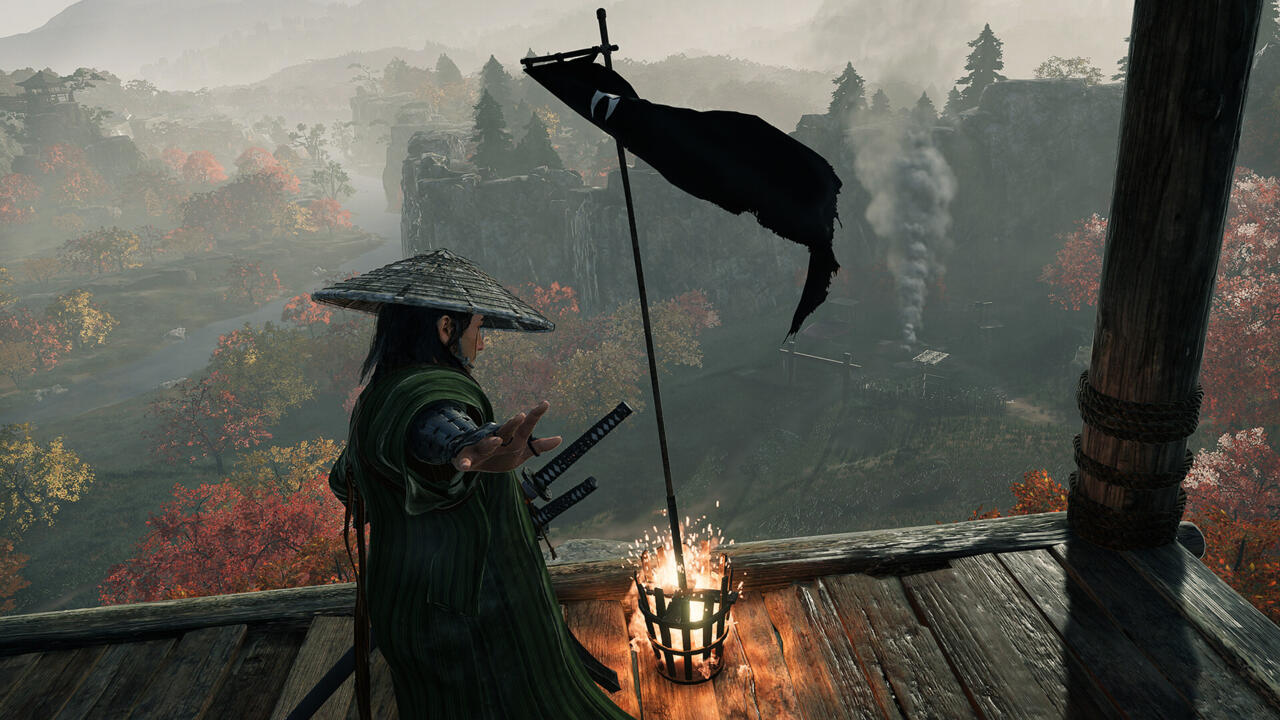Rise of the Ronin feels like a natural next step for developer Team Ninja. After two decades spent creating some of the best linear action games in the genre, the studio is stepping outside of its comfort zone with its first crack at an open-world action RPG. Combining a freeform structure with a combat style similar to Wo Long: Fallen Dynasty and the Nioh series is an enticing prospect, and it’s one of the key areas where Rise of the Ronin stands out after playing its opening two hours.
Set in late 1800s Japan, Rise of the Ronin sees you take control of a nameless work-for-hire warrior in what is known as the “Bakumatsu” period. This era in Japanese history is notable for heralding the end of the militaristic Tokugawa Shogunate, as the country transitioned to a more modernized government that saw East and West collide. It was a period of cultural revolution and uncertainty, and this transition is evident in much of Rise of the Ronin’s design, from the weapons in your arsenal to the architecture of some of Yokohama’s buildings. Your progress through the game also introduces you to historical figures from throughout the period. The opening hours throw you into a boss fight against Commander Matthew C. Perry–whose American “Black Ships” ended Japan’s centuries of isolation–while another of the game’s earliest missions sees you fight alongside the legendary samurai, Sakamoto Ryoma.
As a Ronin, you’re thrust into the kimono of a samurai without a master–a wandering swordsman, free to carve your own path. This freedom informs Rise of the Ronin and begins at the game’s outset, as you’re asked to pick your combat origins. Whichever choice you make gives you a slight boost to one of the game’s four attributes: Strength, Dexterity, Charisma, and Intelligence. It also dictates which special skill you start with, such as the ability to deflect arrows and bullets or the aptitude to deceive people in conversation. From here, the game recommends the kinds of weapons you should use, but you’re free to choose whichever pairing takes your fancy, from the classic katana and odachi combo to the idiosyncratic mix of a bayonet and polearm.
Each weapon type feels distinct, yet Rise of the Ronin’s combat is built upon parrying and stamina management, regardless of your choice. Stamina is known as Ki and determines how you and your enemies can act. Attacking, blocking, and dodging all drain your stamina meter, yet much like in Nioh, tapping R1 at the end of an attack recuperates some of your lost Ki. If your stamina bar is completely depleted, your stance will break and leave you in a brief period of vulnerability. The same is also true of your opponents, so the best way to emerge victorious is by draining your foe’s Ki before finishing them off with a powerful Critical Hit, snuffing out their life with a burst of blood and missing limbs.

You can try to achieve this cinematic flourish by hacking away at an enemy, but you’re unlikely to slice through enough flesh before they wise up and start blocking each subsequent blow. To circumnavigate this, you can use Counterspark, a method of parrying that deflects and neutralizes an opponent’s attacks if you time it correctly, causing them to become temporarily panicked. This opens up a window of opportunity for you to punish your foe with a flurry of offensive blows, preferably by using one of your Martial Skills (special attacks capable of dealing significant Ki damage). Knocking an enemy out of their rhythm with a well-timed Counterspark is incredibly satisfying–the literal spark created by steel colliding with steel provides a visual and audio euphoria–before following up with a grisly combo.
There’s more to combat than this, with long-range firearms at your disposal, different combat stances that match up with specific enemy weapons, a grappling hook that can launch objects and enemies, enemy Martial Skills to contend with, and much more. Nonetheless, the crux of each battle revolves around patiently studying and learning enemy patterns, even if that means dying a few times first. This might sound like the combat ethos of many a Soulslike, but Rise of the Ronin diverts from this path while still maintaining some familiar genre elements.
When you die, for instance, you lose a currency known as Karma, which you can retrieve by slaying the enemy that killed you. By delivering Karma to a bonfire-esque banner, you can convert it into skill points to upgrade your character. This is par for the course, but Rise of the Ronin also differs from the likes of Nioh by featuring regular XP that can’t be lost. Because of this change, you might still enter battles with a hint of trepidation, but dying doesn’t completely prevent character progression. Add in three distinct difficulty levels you can switch to at any time–plus, formidable foes that stay dead after you’ve defeated them–and Rise of the Ronin is a much more approachable Team Ninja game. It’s still a punishing and challenging experience for those who want it to be, but at least now there are options.
Speaking of which, the open-world setting lets you approach the game in various ways. There are side quests and optional combat encounters to pursue–with opportunities to clear towns of bandits or simply find and pet multiple cats–but Rise of the Ronin’s open-world activities are comparatively sparse next to many of its contemporaries, so don’t expect to open up the map and be inundated with icons. Maybe this changes later on, but at least in the opening two hours, it’s refreshingly streamlined and unlikely to contribute to any sense of open-world fatigue.

Gallery
Another departure for Team Ninja is the chance to affect the story through your decisions. I encountered a small taste of this when one of the early bosses started begging for his life. I let him live because I was curious to see how this choice might play out in the future. This aspect of the game has me eager to progress beyond Rise of the Ronin’s opening hours, while the potential evolution of its already excellent combat is another reason for optimism. In stepping out of its comfort zone, Team Ninja seems to have discovered a winning formula by mixing its expertise in melee combat with the inherent freedom of an open world and a more lenient approach to difficulty. I’m excited to see how the final game shapes up.





















+ There are no comments
Add yours